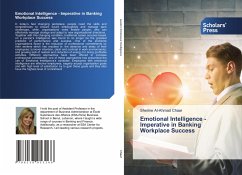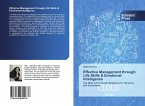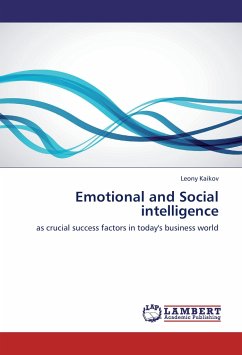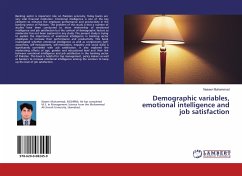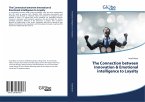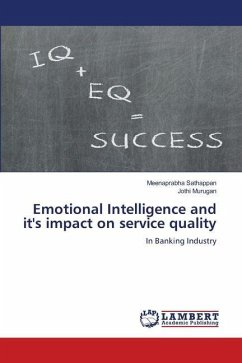In today's fast changing workplace, people need the skills and competencies to ensure future employability and manage work challenges, while, organizations need flexible people, who can effectively manage change and adapt to new organizational directions. Together with this changing condition, traditional career success based on a person's intelligence was found to no longer be the greatest predictor of performance and success. One of the problems organizations faced is the reduction of professional commitments by their workers which has resulted in: the absence and delay of their employees; turnover intention, clash and contrast in work environments; and growing lack of realism and reduction of energy for doing profitable activities. Different approaches have been offered to increase professional commitment; one of these approaches has prescribed the use of Emotional Intelligence's variables. Employees with emotional intelligence are effective employees, eagerly accept organization goals and with high level of satisfaction try to gain these goals and they also have the highest level of commitment .
In today's fast changing workplace, people need the skills and competencies to ensure future employability and manage work challenges, while, organizations need flexible people, who can effectively manage change and adapt to new organizational directions. Together with this changing condition, traditional career success based on a person's intelligence was found to no longer be the greatest predictor of performance and success. One of the problems organizations faced is the reduction of professional commitments by their workers which has resulted in: the absence and delay of their employees; turnover intention, clash and contrast in work environments; and growing lack of realism and reduction of energy for doing profitable activities. Different approaches have been offered to increase professional commitment; one of these approaches has prescribed the use of Emotional Intelligence's variables. Employees with emotional intelligence are effective employees, eagerly accept organization goals and with high level of satisfaction try to gain these goals and they also have the highest level of commitment .
In today's fast changing workplace, people need the skills and competencies to ensure future employability and manage work challenges, while, organizations need flexible people, who can effectively manage change and adapt to new organizational directions. Together with this changing condition, traditional career success based on a person's intelligence was found to no longer be the greatest predictor of performance and success. One of the problems organizations faced is the reduction of professional commitments by their workers which has resulted in: the absence and delay of their employees; turnover intention, clash and contrast in work environments; and growing lack of realism and reduction of energy for doing profitable activities. Different approaches have been offered to increase professional commitment; one of these approaches has prescribed the use of Emotional Intelligence's variables. Employees with emotional intelligence are effective employees, eagerly accept organization goals and with high level of satisfaction try to gain these goals and they also have the highest level of commitment .

